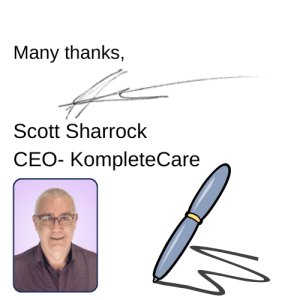On Sunday 2nd – Sunday 9th July, we celebrate NAIDOC week! National NAIDOC Week celebrations are held across Australia in the first week of July each year.
As KompleteCare is proudly an indigenous-owned company, we will also celebrate NAIDOC week.
We celebrate and recognise the history, culture and achievements of Aboriginal and Torres Strait Islander peoples. NAIDOC Week is an opportunity for all Australians to learn about First Nations cultures and their history and participate in celebrations of the oldest, continuous living cultures on earth. You can support and get to know your local Aboriginal and Torres Strait Islander communities through activities and events nationwide.
As an Indigenous man, this is an essential celebration for my family to recognise my family heritage and those we are related to. Unfortunately, my Aboriginal mother suffered many health issues that our mob are prone to as a people and passed away at 73 years old.
Aboriginal health standards in Australia see almost half of Aboriginal men and over a third of women die before they turn 45 years of age. Aboriginal life expectancy as a whole is lower than all other non-Aboriginal Australian cultures.
Some of the leading health issues for Aboriginal and Torres Strait Islander people include:
- Injuries (including suicide and self-inflicted injuries)
- Cardiovascular diseases, including coronary heart disease (CHD);
- Cancer;
- Respiratory diseases;
- Musculoskeletal conditions
Health Risk Factors
Health risk factors, including overweight and obesity, alcohol consumption, smoking, dietary behaviours and physical inactivity, increase the likelihood of a person developing a chronic disease or interfering with the management of existing conditions.
Many health risk factors are preventable and modifiable, and significant reduction is associated with improved health outcomes.
Overweight and Obesity
A poorer quality diet – lacking in essential nutrients and high in processed food – can contribute to obesity. Diet can be affected by what foods are affordable and readily available. For example, fresh fruit and vegetables can be challenging to access for people with low incomes and in more remote areas.
Excess weight is a significant risk factor for many diseases, such as cardiovascular disease, type 2 diabetes, kidney disease, some musculoskeletal conditions, and cancers.
In 2018–19, 71% (381,800) of Aboriginal and Torres Strait Islander people aged 15 and over were overweight or obese.
Alcohol Consumption
Between 2001 and 2018–19, there was an increase in the proportion of Indigenous Australians aged 18 and over reporting that they ‘had not consumed alcohol in the last 12 months or have never consumed alcohol’, from 19% to 26%.
In 2018–19, survey data estimated that a more significant number (37%) of Indigenous Australians aged 18 and over in Remote areas reported that they did not consume alcohol in the last 12 months or have never consumed alcohol than did Indigenous adults in the non-remote areas (23%).
About 1 in 5 (20% or 97,100) Indigenous adults reported drinking alcohol at levels exceeding the lifetime risk guideline in the previous week, the same as in 2012–13.
Tobacco Smoking
Smoking is a major cardiovascular, cancer, and respiratory disease risk.
The proportion of Indigenous Australians aged 15 and over who smoke daily has fallen substantially over the past decade. In 2018–19, 37% of Indigenous Australians aged 15 and over (about 200,400) smoked daily, compared with 45% in 2008. The largest falls in daily smoking rates have occurred among younger Indigenous Australians.
In 2018–19, 85% of Indigenous Australians aged 15–17 reported never smoking, compared with 72% in 2008. The decline in daily smoking rates among Indigenous adults has occurred in non-remote areas. During this period, there has been no significant change in daily smoking rates among Indigenous adults in remote regions.
How to Close the Gap
The government has implemented the “Closing the Gap” initiative to improve health care among Indigenous Australians. This strategy aims to improve lives and reduce the disadvantage of the Indigenous population in the country.
While some areas concerning their targets have improved, there is still a long way to go to reduce the difference, especially regarding access to health care and increasing life expectancy. General education and increasing employment rates are top priorities due to their link to better health. Other initiatives and programs focused towards building hospitals, implementing telemedicine, improving housing and sanitation, and implementing vaccination programs. The government hopes that these strategies will help improve the situation of Indigenous Australians and reduce the health issues experienced by the population.
By raising awareness of the health issues we face in the Indigenous community and my mob, we hope to provide a better healthy choice to our participants.
At KompleteCare, we are committed to acknowledging, celebrating and supporting all cultures throughout Australia, and this is how KompleteCare puts its heart into every home nationwide.










